Blood Moon 2025: Should You Fast During Chandra Grahan?
Ritika | Sep 06, 2025, 18:59 IST
Lunar Eclipse
( Image credit : Unsplash )
A rare blood moon is set to appear in 2025, and like always, it’s got people asking the same old question: “Should you fast during a chandra grahan or just treat it as another night sky show?” This article breaks down what the blood moon actually is, why fasting became linked to eclipses in the first place, what modern science and doctors say about it, and how people today are finding their own balance between faith and logic.
In 2025, the sky will give us another blood moon in September. For many, it’s just a stunning red glow in the night, but for others, it carries a lot more weight. For centuries in India, eclipses have never just been an astronomical thing; they’ve carried social, cultural, and deeply religious weight. Every time a chandra grahan appears on the calendar, one question comes up without fail: “Should we fast during the eclipse or is it just blind belief?” This year’s blood moon has once again brought that debate to the dinner table, the temples, and, of course, social media.
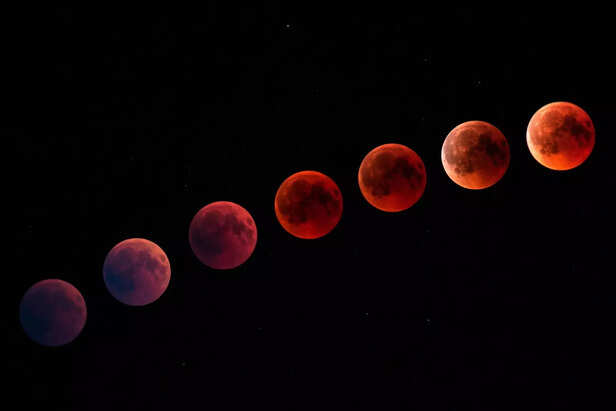
A Blood Moon, or total lunar eclipse, occurs when the Earth comes between the sun and the moon, fully blocking the sunlight from reaching the Moon. That red color? Not magic. It's sunlight refracted by the Earth's atmosphere, scattering shorter blue light and casting red colors onto the Moon's surface. It's known as Rayleigh scattering. For sky-gazers, the September 7–8, 2025, lunar eclipse will be a spectacle. The totality takes about 82 minutes, and it's visible over Asia, Africa, Australia, and even further. You can observe it with your bare eyes, no eye protection glasses required, unlike solar eclipses.
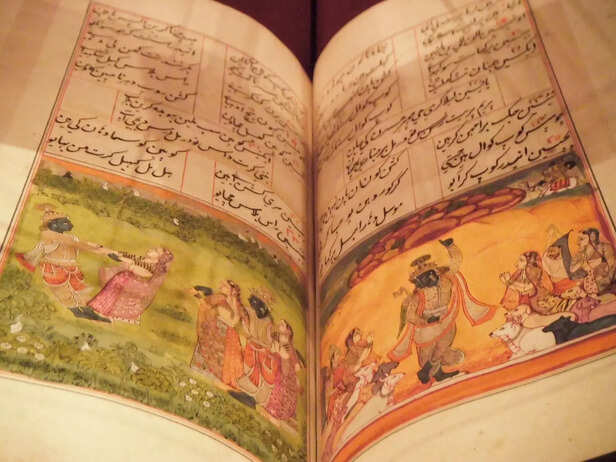
Traditionally, many households observe a Sutak period, a consecrated time starting hours before the eclipse and lasting until it ends. Fasting, avoiding cooking, and other rituals are followed during this time.
According to the Kurma Purana, food is not to be eaten during the eclipse. Ritual bath and fasting are prescribed.
Modern voices like Sadhguru describe how eclipse energy compresses lunar cycles into a few hours, suggesting that cooked food may "deteriorate" during this sensitive period; hence, fasting is recommended.
Many communities, especially with pregnant women, children, or the elderly, follow advice to stay indoors, fast, and refrain from cooking or handling sharp objects during the eclipse.
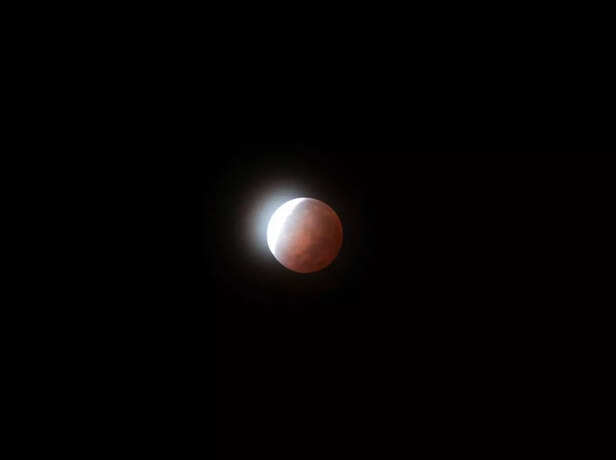
Time to bring in modern insight. Science clearly clarifies that:
Lunar eclipses pose no physical threat; there’s no radiation or energy effect that can harm food, humans, or the environment. The Astronomical Society of India even launched campaigns to counter the superstition that eating during an eclipse is harmful.
NASA, on its official website, has posted several times that neither solar nor lunar eclipses impacts either humans or food.
So, practices such as fasting, not venturing out, shutting the doors, or avoiding cooking don't impact astronomical phenomena, but they do fulfill cultural purposes.
The Tamil Nadu Science Forum even encouraged the people and communities to enjoy the eclipse openly, attend public viewings, and ignore old superstitions.
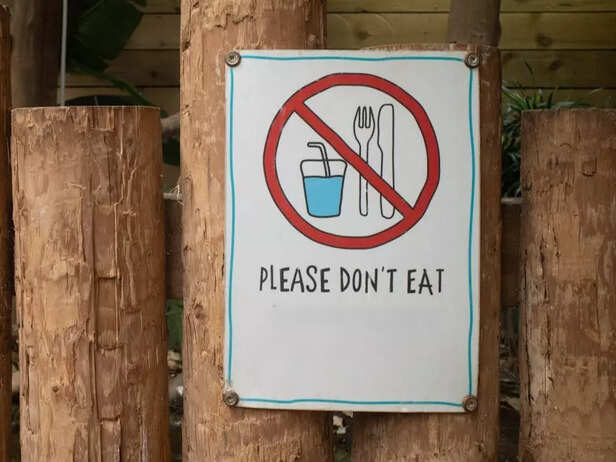
Here’s the thing: people have always been divided on this. For some, fasting during a chandra grahan isn’t even up for discussion. It’s tradition, it’s part of dharma, and you just don’t question it. Temples follow it, priests recommend it, and elders in households make sure it happens. For them, fasting is not about science; it’s about faith and discipline.
But then there’s the other side. Younger generations, especially in cities, are asking, “What’s the logic behind fasting during an eclipse?” They look at eclipses as natural phenomena, not bad omens. They’ll tell you, “Why skip meals because the Earth’s shadow is blocking sunlight for a couple of hours?” And they’re not wrong either. Modern science doesn’t prescribe fasting. Doctors will say fasting or eating during the eclipse doesn’t change how your body reacts to it.
So, if fasting makes you feel grounded or imbues the eclipse with spiritual significance, do it. It's a culturally and rhythmically based choice.
But if you're just doing it because you think you should, fasting isn't called for from a health or scientific perspective.
And if you're pregnant or have health issues, fasting or rigorous rituals are not a good idea unless you're told otherwise. Your health is more important than tradition.
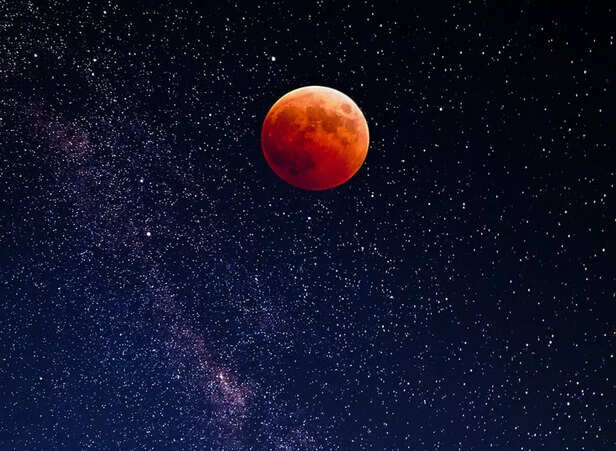
Why do people still fast despite knowing the science? Because rituals do more than affect nature, they shape our minds.
They offer mental structure, a pause in routine that gives the event meaning.
Spiritual alignment: traditions often see eclipses as ideal for prayer, purification, or meditation.
They help navigate the unknown with stability, something deeply human.
The Blood Moon of September 2025 is a rare cosmic event to admire, not fear. Whether or not you fast during Chandra Grahan, you still get to witness one of nature’s oldest spectacles. Science says it’s safe. Traditions say it’s meaningful. The middle path could be respecting the sky, grounding your practice, and listening to your own values, which makes it yours.
Explore the latest trends and tips in Health & Fitness, Spiritual, Travel, Life Hacks, Trending, Fashion & Beauty, and Relationships at Times Life!
Frequently Asked Questions (FAQs)
1. The Science Behind the Blood Moon

Blood moon
( Image credit : Pixabay )
A Blood Moon, or total lunar eclipse, occurs when the Earth comes between the sun and the moon, fully blocking the sunlight from reaching the Moon. That red color? Not magic. It's sunlight refracted by the Earth's atmosphere, scattering shorter blue light and casting red colors onto the Moon's surface. It's known as Rayleigh scattering. For sky-gazers, the September 7–8, 2025, lunar eclipse will be a spectacle. The totality takes about 82 minutes, and it's visible over Asia, Africa, Australia, and even further. You can observe it with your bare eyes, no eye protection glasses required, unlike solar eclipses.
2. The Tradition: Fasting During Sutak

Old manuscript
( Image credit : Pixabay )
Traditionally, many households observe a Sutak period, a consecrated time starting hours before the eclipse and lasting until it ends. Fasting, avoiding cooking, and other rituals are followed during this time.
According to the Kurma Purana, food is not to be eaten during the eclipse. Ritual bath and fasting are prescribed.
Modern voices like Sadhguru describe how eclipse energy compresses lunar cycles into a few hours, suggesting that cooked food may "deteriorate" during this sensitive period; hence, fasting is recommended.
Many communities, especially with pregnant women, children, or the elderly, follow advice to stay indoors, fast, and refrain from cooking or handling sharp objects during the eclipse.
3. What Does Science Say?

Blood Moon
( Image credit : Pexels )
Time to bring in modern insight. Science clearly clarifies that:
Lunar eclipses pose no physical threat; there’s no radiation or energy effect that can harm food, humans, or the environment. The Astronomical Society of India even launched campaigns to counter the superstition that eating during an eclipse is harmful.
NASA, on its official website, has posted several times that neither solar nor lunar eclipses impacts either humans or food.
So, practices such as fasting, not venturing out, shutting the doors, or avoiding cooking don't impact astronomical phenomena, but they do fulfill cultural purposes.
The Tamil Nadu Science Forum even encouraged the people and communities to enjoy the eclipse openly, attend public viewings, and ignore old superstitions.
4. The Bigger Question: To Fast or Not To Fast?

No eating sign
( Image credit : Pexels )
Here’s the thing: people have always been divided on this. For some, fasting during a chandra grahan isn’t even up for discussion. It’s tradition, it’s part of dharma, and you just don’t question it. Temples follow it, priests recommend it, and elders in households make sure it happens. For them, fasting is not about science; it’s about faith and discipline.
But then there’s the other side. Younger generations, especially in cities, are asking, “What’s the logic behind fasting during an eclipse?” They look at eclipses as natural phenomena, not bad omens. They’ll tell you, “Why skip meals because the Earth’s shadow is blocking sunlight for a couple of hours?” And they’re not wrong either. Modern science doesn’t prescribe fasting. Doctors will say fasting or eating during the eclipse doesn’t change how your body reacts to it.
So, if fasting makes you feel grounded or imbues the eclipse with spiritual significance, do it. It's a culturally and rhythmically based choice.
But if you're just doing it because you think you should, fasting isn't called for from a health or scientific perspective.
And if you're pregnant or have health issues, fasting or rigorous rituals are not a good idea unless you're told otherwise. Your health is more important than tradition.
5. The Ritual Value of Eclipse Practices

Blood moon in night sky
( Image credit : Unsplash )
Why do people still fast despite knowing the science? Because rituals do more than affect nature, they shape our minds.
They offer mental structure, a pause in routine that gives the event meaning.
Spiritual alignment: traditions often see eclipses as ideal for prayer, purification, or meditation.
They help navigate the unknown with stability, something deeply human.
Balancing Tradition and Reason
Explore the latest trends and tips in Health & Fitness, Spiritual, Travel, Life Hacks, Trending, Fashion & Beauty, and Relationships at Times Life!
Frequently Asked Questions (FAQs)
- Does the Blood Moon fall during Pitru Paksha in 2025?
Yes, it coincides with Pitru Paksha Purnima, making it spiritually significant for ancestral rituals. - Why is Tulsi or Kusha added to food during an eclipse?
It’s believed to purify and protect food from negative energies during Sutak, though this is symbolic and not scientifically proven. - Is it okay to sleep during the lunar eclipse?
While tradition discourages sleeping during Sutak, there’s no scientific reason to avoid rest. It’s a personal or cultural choice. - Should pregnant women stay indoors during lunar eclipse?
They have long been advised to stay indoors, although there's no scientific claim behind it, these women can take this advice and engage in calming activities or resting.
